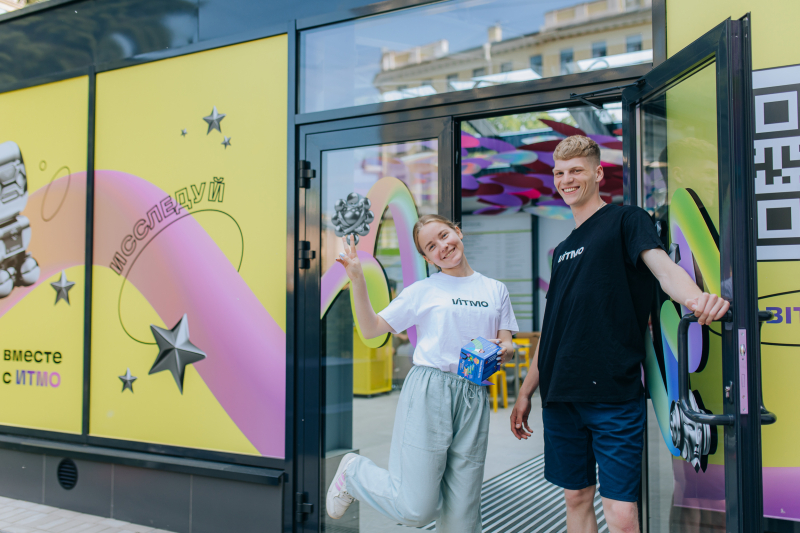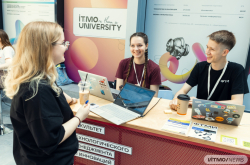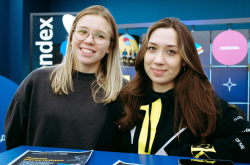In 2023, the contest received a total of 300 applications, the majority of which were submitted by students from St. Petersburg and Leningrad Oblast (45%).
ITMO.STARS was first held in 2019, and ever since, the number of contest winners has been steadily growing, totaling 19 in 2021, 24 in 2022, and a record 26 in 2023.
Its geographical representation is expanding, as well: this upcoming academic year, the university will welcome first-year students from such Russian cities as Komsomolsk-on-Amur, Izhevsk, Perm, Novokuznetsk, and Krasnoyarsk.
This year, the top choice among prospective students were IT-related programs, followed by chemistry and biology specializations.
Winners and their projects
IT projects
The winners submitted as many as eight IT projects, among which was a mobile fintech app (Maksim Zoteev from Perm); a programming language making the best of interpreted and compiled languages (Vasiliy Kozlov from Magnitogorsk); a distributed monitoring system for WebEye (Igor Kuzmenkov from Moscow); a SIMD optimized SHA-512 hash function (Shahboz Zabirov from Yoshkar-Ola); a 3D model for live presentation of objects (Daria Tarasova from St. Petersburg); a Telegram email client (Andrey Karchevsky from Yaroslavl); ZipLock, a scalable API security module system (Roman Shvindt from Izhevsk); and Crocum, an architecture and API for a training platform for system administrators (Polina Katunina from Kuznechnoye, Leningrad Oblast).
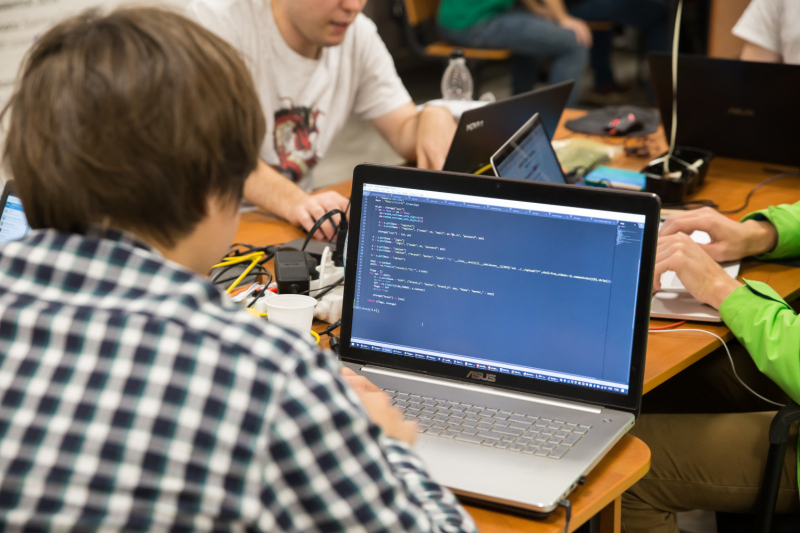
Credit: ITMO University
Research
Research is another popular category at this year’s ITMO.STARS. Mikhail Gunin from St. Petersburg used the advances of machine learning and computer vision to create a method that can measure the concentration of ethanol in water-ethanol solutions. Stanislav Sergeenkov from Penza won the competition with a technology for obtaining polymer material from plant agricultural waste, and Maksim Bogdanov from Petrozavodsk showcased a web service for searching for biologically active peptides in collagens. Taisiya Vasilyeva from St. Petersburg submitted two research projects in supramolecular chemistry and molecular biology. Elizaveta Matveeva from St. Petersburg presented her study on the synthesis of a fluorescent chemical compound. And Mikhail Leonov from St. Petersburg built a prototype of a lab assistant hand for membrane creation based on the layer-by-layer technique.
Oleg Novikov from Pushkin advanced to the final round of ITMO.STARS through IChem Prize, a competition organized by ITMO’s Infochemistry Scientific Center, with research on liquid metal compounds and their applications in sensing. Stanislav Mitsai from St. Petersburg developed a computational method for determining atomic configurations that can maintain the longest-lived single-photon states, while Aleksey Solodovnikov, also from St. Petersburg, synthesized samples of CsGeI3 perovskite crystals to observe their optical effects.
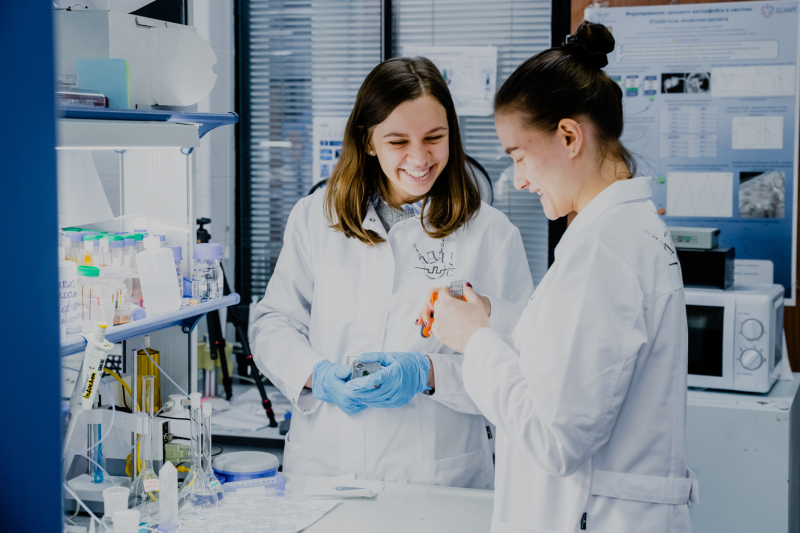
Credit: ITMO.NEWS
Startups
Out of 26, six participants presented their own startups: Anastasia Dedkova from Tyomkino (Smolensk Oblast) presented a smart medical assistant with a speech recognition feature; Maksim Kazumyan from Komsomolsk-on-Amur created Jantor, an affordable ergonomic keyboard; David Margiev from Volgograd founded the graphic design studio HTBSR.STD and Daria Nikolaeva from Ivanovo – the startup Izzy Labs, an NFT marketplace in Telegram; David Grigoriev from Novokuznetsk is working on Lumify, a smart lighting technology for better sleep; and Stepan Kochurov from Izhevsk is developing a microgreens grower.
Social projects
Finally, three more participants triumphed for their social projects: Daria Lapaeva from Krasnoyarsk worked at the center for electron beam processing of food products for the needs of the largest agrocomplex in Siberia; Danila Moskalets from St. Petersburg developed MKbrain, a social and educational platform; and Egor Krechetov from St. Petersburg created PsyReply, a psychological aid project.
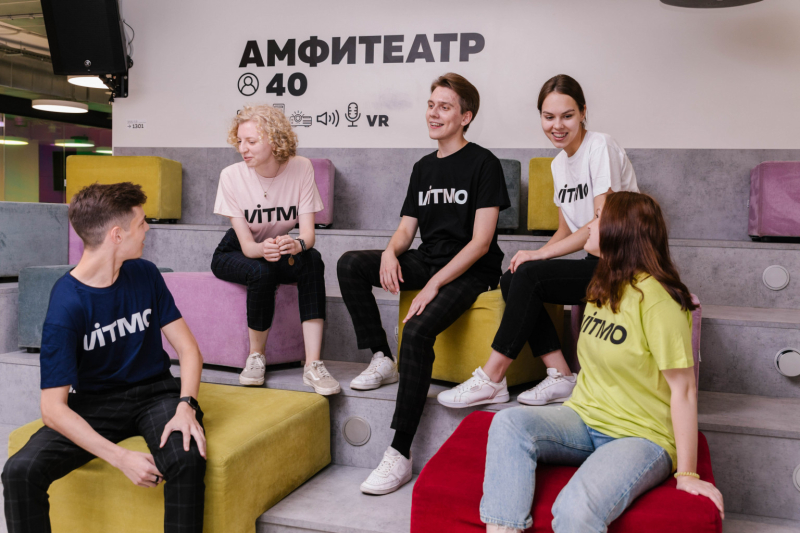
Credit: ITMO University
About the contest
ITMO.STARS is a competition for prospective students that allows applicants to enroll at ITMO University based on their personal accomplishments, be it a research or social project, an engineering design, or a tech startup. The only formal criterion being that participants need to pass the minimum Unified State Exam (USE) score threshold (60 points per subject in most cases).
Within the contest, all applications are assessed by a committee that includes representatives of the university’s schools and faculties, and the admission board. First, they check if the applications are currently filled out, as well as correspond to the specifics of the available educational programs and the contest’s concept. Then, the committee invites the authors of the best projects for an interview where they assess each applicant’s motivation, prospects, and acquired competencies.
Those who ace all stages get the chance to study at ITMO for free. Additionally, if they perform well academically, they can transfer to a state-funded tuition-free position to receive a monthly stipend.
Last year marked the graduation of the first-ever ITMO.STARS winners. Learn more about their experiences, successes, and life stories in our special project.
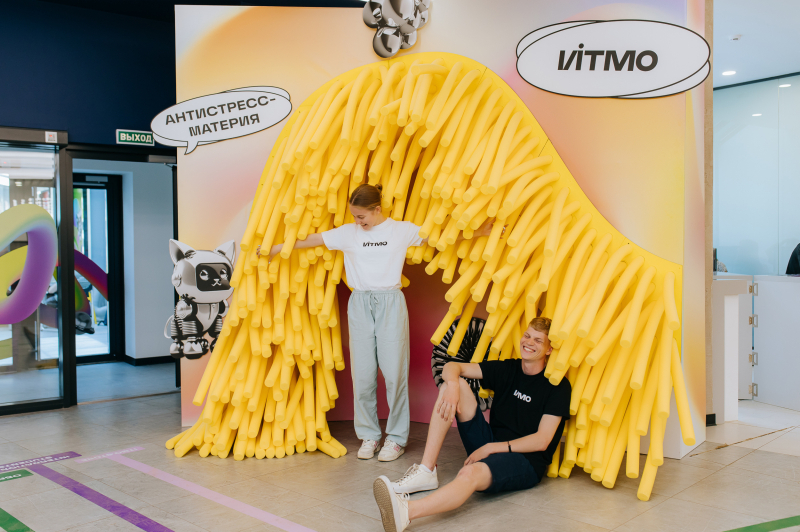
ITMO University's Admission Campaign 2023. Photo by Viktoria Shapovalova / ITMO Mediaportal
